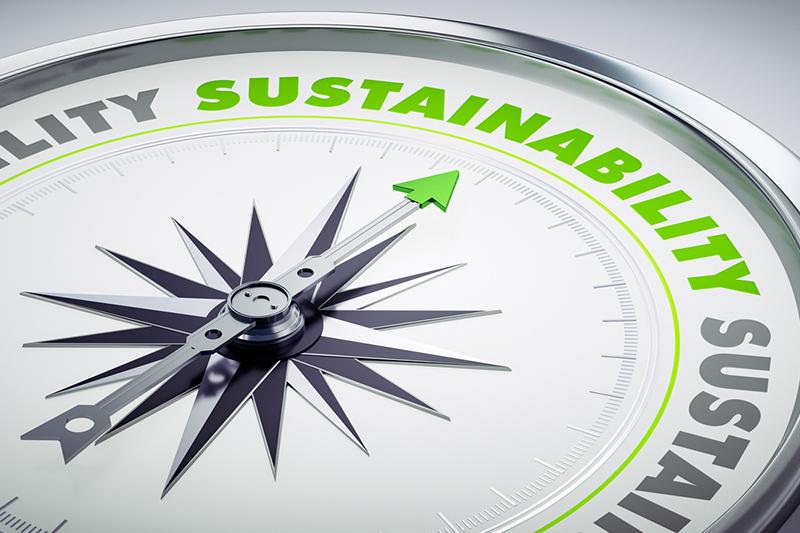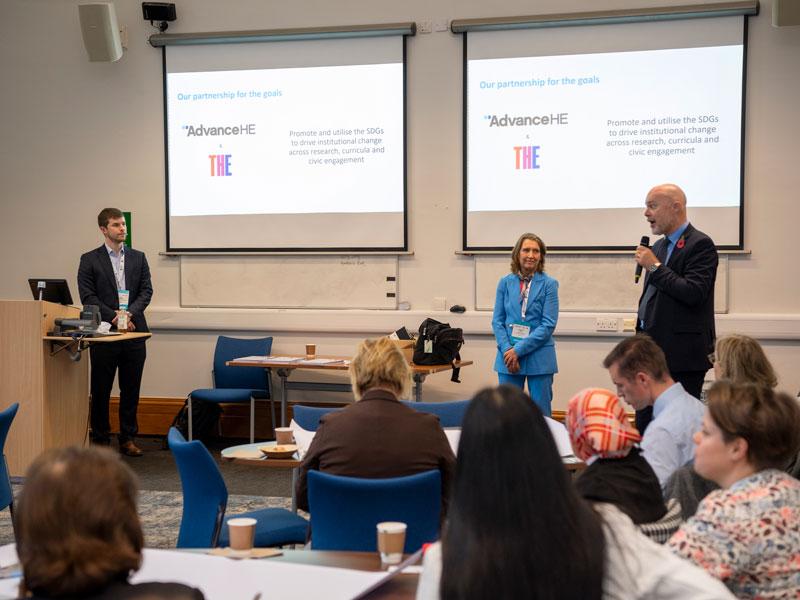Let’s face it, universities are energy-intensive places. Challenges to reducing their carbon footprint are both obvious (such as heating and lighting campuses or staff and student travel) and more obscure (specialised laboratory equipment and data storage). Prospective students are demonstrably interested in how universities manage these apparent conflicts while still excelling in learning and research on a global stage.
In Aotearoa New Zealand, we are fortunate to be able to use renewable energy sources, particularly for electricity and biomass fuel, and we need to tell our communities what we are doing and how we are leading the effort.
Yet, so much more needs to be considered.
Sustainability leadership within higher education
In my view, visible senior leadership in sustainability matters. This includes having a presence in your community and with the public, and regularly communicating to staff, especially when they have connections to other large local and regional bodies and knowledge of current government thinking. Sustainability leadership within higher education requires a deep understanding of not only the delivery of core tertiary functions such as teaching and research but also the role of universities as major asset owners. Additionally, a clear understanding of the national context is important, as this affects strategic decisions that are made, in our case, to support our sustainability journey at the University of Canterbury (UC).
What’s unique about the pro vice-chancellor for sustainability role?
When we were building our 10-year strategy back in 2019, it became obvious that “sustainability” ran through all strands of UC’s work – this theme regularly cropped up in people’s views on teaching, research and campus operations. Sustainability was given prominence in our strategy and it needed a champion. As a result, a new role was created, and in 2021 I was appointed UC’s first pro vice-chancellor for sustainability. We believe it is the highest appointment in sustainability in the tertiary sector of New Zealand.
- Empowering women leaders in fighting climate change: a call to action
- A guide to evaluating and managing climate risks to universities
- A practical approach to tackling eco-anxiety
This very senior role reports directly to the vice-chancellor along with other – perhaps more traditional – roles such as the deputy vice-chancellors for academic and research. The seniority of the role enables a truly holistic view and engagement with all the university’s operational and academic strategies.
In a significant step, which I led, towards reducing its carbon footprint, UC has converted its main campus coal boiler to run on locally sourced biomass, specifically wood chip and pellet. This transition not only halves our greenhouse gas emissions but also supports the local economy and sustainable forestry practices.
What does a pro vice-chancellor for sustainability do?
Pro vice-chancellor for sustainability is a very broad role. I have overall responsibility for increasing the university’s awareness and reduction of its carbon footprint. This includes efforts such as improving energy use, switching to more sustainable energy sources, implementing eco-friendly practices in laboratories, using virtual realities to cut down on staff and student travel, and addressing the carbon footprint from air travel. I work alongside academics in introducing sustainable themes into their curriculum, and supporting research with sustainable solutions as the focus. My work varies from encouraging academics to think about the UN’s Sustainable Development Goals in their teaching and research and discussing which trees we might plant on our land to changing behaviour for conference attendance and other travel.
Our staff are strongly supported to present their work nationally and internationally, and the university prioritises sustainable travel, using overland options whenever possible. I led an air travel survey initiative, yielding comprehensive reports and valuable data that were shared with our staff through channels such as staff meetings and email communications.
I also liaise regularly with international tertiary academic networks that have the same goals as us. Finally, I am responsible for ensuring that we carry out appropriate and relevant activities that ensure we maintain our strong position in international rankings for sustainability.
Engaging students, faculty and staff in sustainability efforts
We have implemented Green Impact, which is an Australasian Campuses Towards Sustainability (ACTS) learning and award programme designed to encourage and support universities, colleges and other institutions to improve their environmental performance and foster sustainable behaviours within their communities. It launched at UC in 2023 and has grown in 2024 in terms of both numbers of staff engaged and actions completed. Alongside other universities, it’s mostly our professional staff who are engaged in the programme and we are working on understanding this further.
We also hold annual sustainability awards that are open to all UC staff, we developed a sustainability module for PhD students, which we will roll out to undergraduates and staff in 2025, and we recently held a showcase event on campus activities and research, which will become an annual event.
Measuring the success
We use key performance indicators to measure the success of our sustainability improvements, such as the total greenhouse gases year by year divided into categories, international rankings (especially sustainability rankings), the number of PhD students working in sustainability-related areas, and our energy use and waste metrics.
I see myself as the focal point for sustainability at our university, and receiving a share of the diversity of views on a range of issues and responding to those is success of the role to me. It underscores the accessibility for individuals to express their concerns and signifies a dedicated effort to engage with and address those concerns.
Staff and students need to understand that our research and the information we impart can lead to societal solutions in the long term, which is an increasingly important role for universities. Sustainability is a global priority and talking about it encourages us to ensure our future graduates are well equipped to deal with such issues.
Jan Evans-Freeman is pro vice-chancellor for sustainability at the University of Canterbury, New Zealand.
If you would like advice and insight from academics and university staff delivered direct to your inbox each week, sign up for the Campus newsletter.




comment